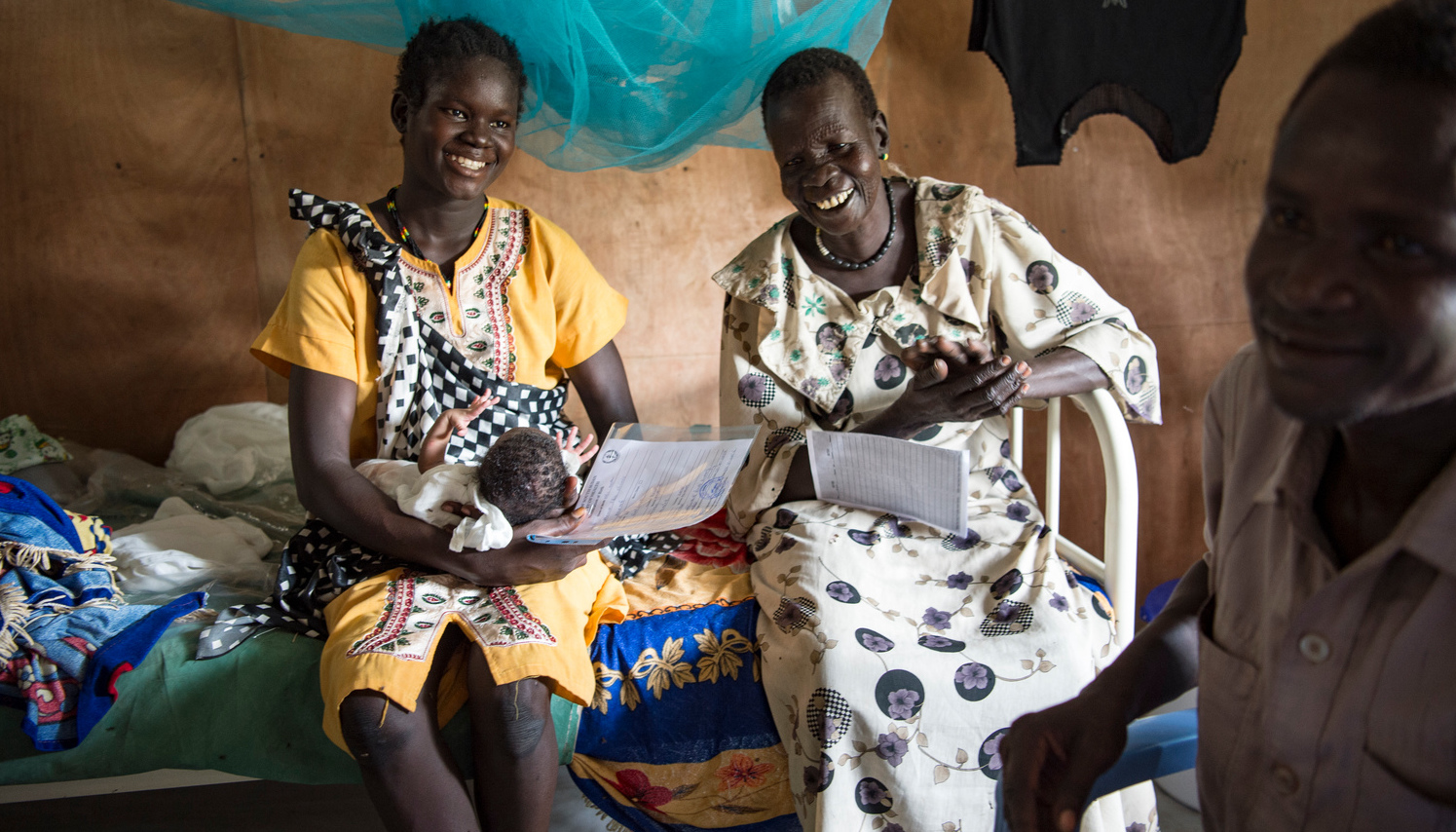Improving national nutrition information systems (EC-NIS project) in five countries
Côte d’Ivoire, Ethiopia, the Lao People’s Democratic Republic, Uganda and Zambia

About the project
UNICEF and WHO, with financial support from the European Commission (EC), are implementing a project titled “Strengthening national nutrition information systems” in five countries in Africa and Asia: Cote d’Ivoire, Ethiopia, Laos, Uganda and Zambia for a period of four years (April 2020 – March 2024).
Timely and quality data with an adequate level of disaggregation are essential to guiding country choices, allocating resources and monitoring progress in nutrition. Demographic and Health Surveys (DHS), Multiple Indicator Cluster Surveys (MICS) or national nutrition surveys are the major sources of nutrition data for many countries, but they are complex and expensive undertakings that cannot be implemented with the required frequency. It is, therefore, critical to strengthen or establish integrated nutrition information systems (NIS) of countries to enhance availability and use of routine nutrition data to better support policy development, programme design and monitoring.
UNICEF’s and WHO’s role is to support countries in defining monitoring standards and respond to their demand for technical assistance on nutrition monitoring to address the nutrition data gaps that exist in many countries. This initiative will increase the uptake of nutrition information and provide improved knowledge for policy and programme development and implementation by increasing country capacity in monitoring programmes and national/global nutrition targets
All country-level project activities are implemented and managed by a technical team in the Ministry of Health (MOH) of the country concerned, in collaboration with WHO and UNICEF country offices.
Objectives and outputs
The objective of this project is improved NIS and country capacity in monitoring programmes and national/international nutrition targets.
The expected outputs in the countries benefiting from this project are:
- Revised National Nutrition Monitoring Frameworks filling in major nutrition data gaps;
- Refined/new data collection systems for existing HMIS including a nutrition module (based on routine health centre data and sentinel sites) using updated data collection tools and digital data collection systems;
- Enhanced human resource capacity for the collection, analysis, interpretation, communication and quality control of nutrition data and for the management of NIS;
- Improved IT supported data management systems in line with the District Health Information System 2 (DHIS2) Nutrition Module and generating information for programmes and policies;
- Availability of quality and timely data from routine data collections in health centres and from surveys; and
- Improved dissemination of NIS information.
Where we are working
- Cote d’Ivoire
- Ethiopia
- Laos
- Uganda
- Zambia
Year 2 of the project
On 18th November 2021, UNICEF and WHO convened an annual gathering, with the aim to review the European Commission funded NIS project implementation to date, exchange lessons learnt and good practices, share knowledge and start planning the activities for Year 3. The main objectives of the annual gathering were to review key achievements and areas of improvement, document lessons learned and best practices for each country, strengthen collaboration between all stakeholders at country, regional and global level and to review country workplans for Year 3 (2022).
The annual gathering was preceded by five national review workshops, organized under the leadership of the respective Country Steering Committee (CSC), with participation from the Project Steering Committees (PSC) and country Technical Working Groups (TWG). Overall, the implementation of the activities planned for year 2 of the project are on track in all countries. In Lao People’s Democratic Republic, one of the key achievements reported the leveraging of the existing DHIS2 platform to reflect nutrition within the broader national information system of the country. Côte d’Ivoire developed a manual for nutrition data management, while Ethiopia completed the review of the existing NIS and Unified Nutrition Information System (UNISE) – a multi-sectoral nutrition data management tool that captures nutrition specific data through the DHIS2 as well as nutrition sensitive data from the other sectors through the DHIS2. Uganda reviewed their NIS and customized the country national nutrition M&E framework into the DHIS2 and Zambia the revised nutrition data elements in HMIS.
Launch of the NIS Project
The European Commission (EC), United Nations Children’s Fund (UNICEF), and World Health Organization (WHO) and governments convened for the launch of the joint NIS project, aimed at improving national Nutrition Information Systems (NIS) in five countries: Côte d’Ivoire, Ethiopia, the Lao People’s Democratic Republic, Uganda, and Zambia. The meeting in October 2020 provided an opportunity for all stakeholders to develop workplans to meet the project objectives.
